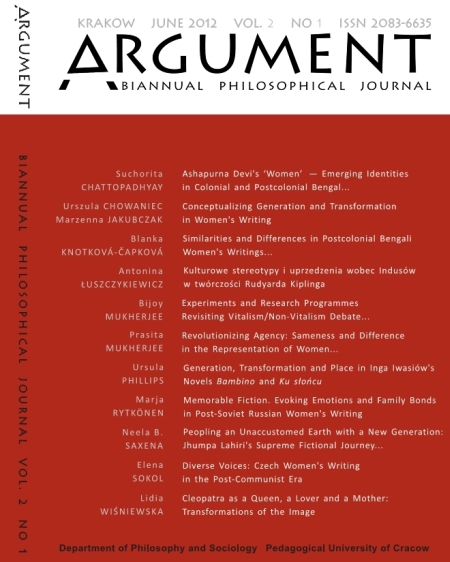Memorable Fiction. Evoking Emotions and Family Bonds in Post-Soviet Russian Women’s Writing
Keywords:
emotion, generation, memory, narrative, post-Soviet women’s writing, Russian women’s writingAbstract
This article deals with women-centred prose texts of the 1990s and 2000s in Russia written by women, and focuses especially on generation narratives. By this term the author means fictional texts that explore generational relations within families, from the perspective of repressed experiences, feelings and attitudes in the Soviet period. The selected texts are interpreted as narrating and conceptualizing the consequences of patriarchal ideology for relations between mothers and daughters and for reconstructing connections between Soviet and post-Soviet by revisiting and remembering especially the gaps and discontinuities between (female) generations. The cases discussed are Liudmila Petrushevskaia’s ‘povest’ Vremia noch [The Time: Night] (1991), Liudmila Ulitskaia’s novel Medeia i ee deti [Medea and her Children] (1996) and Elena Chizhova’s novel Vremia zhenshchin [The Time of Women] (2009). These novels reflect on the one hand the woman-centredness and novelty of representation in women’s prose writing in the post-Soviet period. On the other hand, the author suggests that they reflect the diverse methods of representing the Soviet era and experience through generation narratives. The texts reassess the past through intimate, tactile memories and perceptions, and their narration through generational plots draws attention to the process of working through, which needs to be done in contemporary Russia. The narratives touch upon the untold stories of those who suffered in silence or hid the family secrets from the officials, in order to save the family. The narration delves into the different layers of experience and memory, conceptualizing them in the form of multiple narrative perspectives constructing different generations and traditions. In this way they convey the ‘secrets’ hidden in the midst of everyday life routines and give voice to the often silent resistance of women towards patriarchal and repressive ideology. The new women’s prose of the 1980s-90s and the subsequent trend of women-centred narratives and generation narratives employ conceptual metaphors of reassessing, revisiting and remembering the cultural, experiential, and emotional aspects of the past, Soviet lives.


